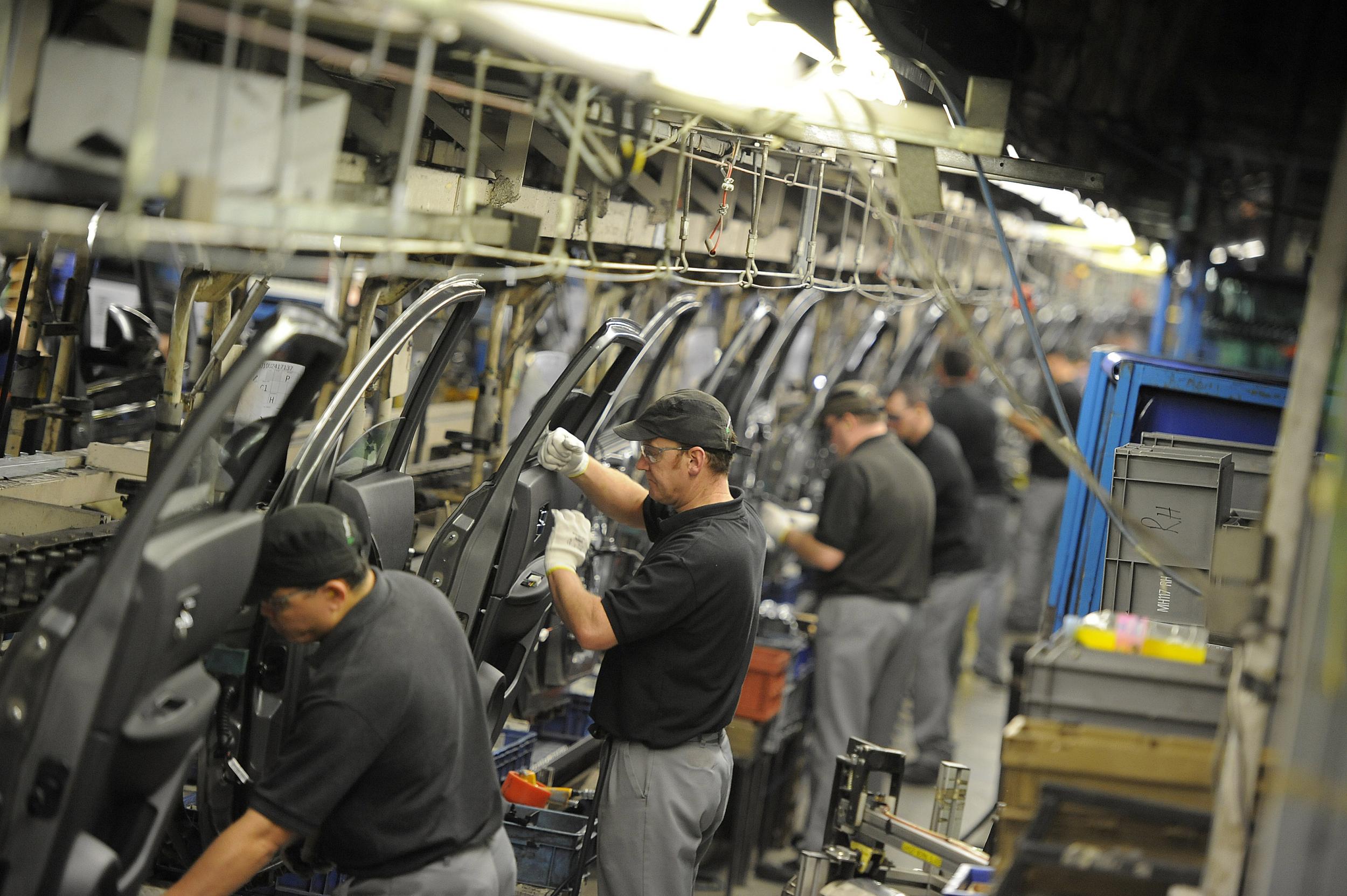UK manufacturing output and optimism tumble to multi-year lows, CBI survey shows
Output fell in past three months at sharpest rate since 2009 and investment plans for next 12 months weakened

UK manufacturing output declined at the fastest pace in a decade and optimism among firms plunged in the three months to mid-July, according to the latest CBI Industrial Trends Survey.
Nineteen per cent of manufacturers said output was up and 30 per cent said it was down, giving a balance of -11 per cent – the lowest since July 2009 when Britain had just emerged from the deep recession that followed the financial crisis.
The measure of firms’ confidence about the general business situation was -32 per cent, the lowest since July 2016, just after the EU referendum.
Rain Newton-Smith, chief economist at the CBI, said the sector was undermined by “the double blow” of Brexit uncertainty and slower global growth.
All of the CBI’s seven measures of activity over the past three months, which include output, new orders and employment, hit multi-year lows.
The results suggest that the slump in manufacturing revealed by the closely watched PMI survey for June continued, pointing to a weak start to the third quarter.
A number of economists think the economy contracted slightly in the second quarter, and another fall in GDP in the current quarter would tip Britain into a recession. Two bodies providing closely watched forecasts, the National Institute of Economic and Social Research and the Office for Budget Responsibility, have in recent days warned of such a possibility.
The CBI survey showed that manufacturing activity was expected to pick up over the next three months, with the output balance rising to +6 per cent.
However, investment plans for the next 12 months weakened. Uncertainty about future demand was the most-cited reason but labour shortages were also a concern.
“With orders, employment, investment, output and business optimism all deteriorating among manufacturers, it’s crucial for the new prime minister to secure a Brexit deal ahead of the October deadline – and get on with pressing domestic priorities from improving our infrastructure to fixing the apprenticeship levy,” Ms Newton-Smith said.
“This will allow firms to focus on investing in new technology and tackling the skill shortages that plague this sector.”
The CBI interviewed 291 firms between 25 June and 15 July.
Subscribe to Independent Premium to bookmark this article
Want to bookmark your favourite articles and stories to read or reference later? Start your Independent Premium subscription today.

Join our commenting forum
Join thought-provoking conversations, follow other Independent readers and see their replies